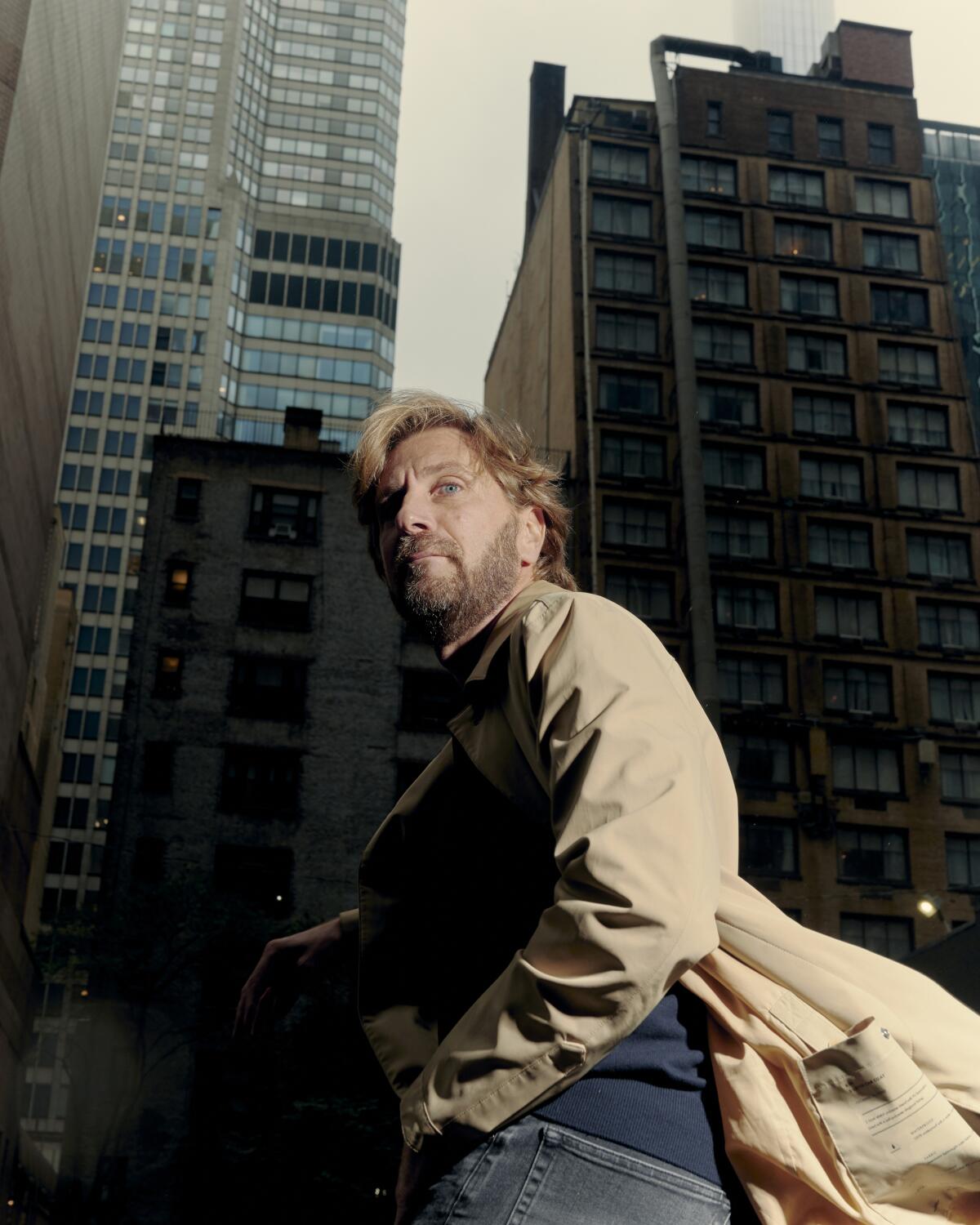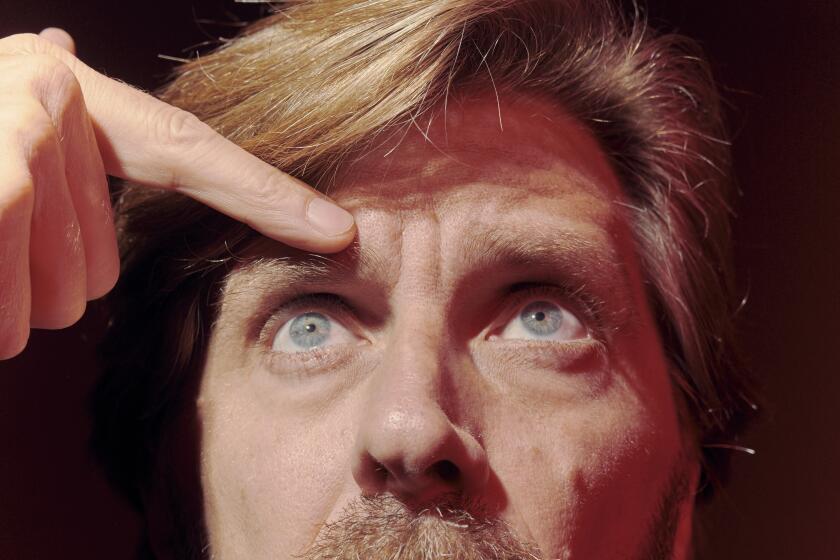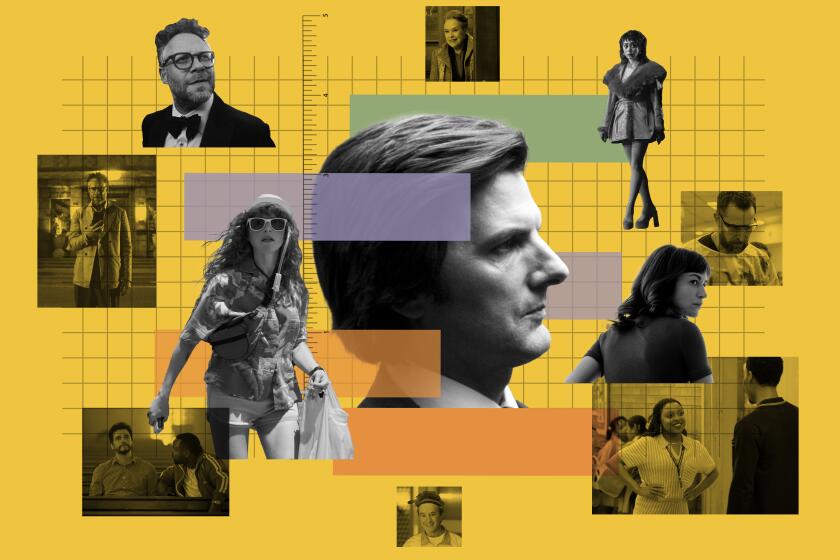‘Triangle of Sadness’ director Ruben Ostlund is no misanthrope. He just loves failure

- Share via
Swedish director Ruben Östlund is part of a rarefied club of artists who have twice won the Palme d’Or at the Cannes Film Festival. In 2017, he earned the award for “The Square,” an outrageous satire about the contemporary art world. More recently, he took home the prize for “Triangle of Sadness,” a three-part comic epic in which a superyacht capsizes, stranding a subsection of the global elite on a deserted island.
With his 2014 breakthrough “Force Majeure,” Östlund established himself as one of cinema’s most unflinching, anthropologically inclined provocateurs. But despite the highbrow recognition, Östlund is committed to being an entertainer. Speaking via Zoom from the New York Film Festival, Östlund says that when he’s traveling by plane, he’s more likely to watch the latest Adam Sandler release than a European art-house film.
Your films have an interesting relationship to spectacle. You’re clearly interested in entertainment as much as intellectual engagement. Does that come from your own habits as a moviegoer?
When you have the Swedish Film Institute, it’s a great thing, because filmmakers can take risks that you can’t in the American system, where there’s a much higher demand that everybody get their money back. But there’s a downside, which is that when you get the money, you’re safe. So you don’t have to punch all the way to reach the audience.
It was not like that in the ’70s, for example. When I think about Luis Buñuel or Lina Wertmüller, they were wild and entertaining at the same time. So when I started to make my last three films, I wanted to combine the best part of American cinema with the best part of European cinema.
Now a rarefied two-time winner of Cannes’ Palme d’Or, Ruben Östlund talks about his savage satire of beauty and privilege, ‘Triangle of Sadness.’
You’ve talked about fine-tuning your film through test screenings, which most directors hate. What are you looking for in an audience reaction?
The first thing that is really important is the concentration. If you have a certain rhythm in a movie and it’s not working, people zone out and they start to think about other things. When the rhythm isn’t working, the audience starts to project things onto the film that aren’t there. So I do this to make sure I have the right [entry and exit] points for every scene.
For me it’s a balance, because I also want to push things very far. I always look for dilemmas … [so] we identify with the dilemma rather than the character. I always want the audience to be cornered. I want to corner myself. What do I do if I end up in this situation? There are two options, but none of them are easy.
This film is political, but it’s not a polemic. And there seems to be a commitment to hearing both sides of an argument, most prominently in the sequence where the captain and the businessman are trading quotations from Marx and Reagan. They’re trading big ideas, but the duel makes for great comedy.
My parents became left-wing during the ’60s, and my mother still considers herself a communist. During my upbringing, my brother became more of a right-wing liberal. And in my family, every time we gathered for Sunday dinner, we were always discussing politics and we had a lot of fun doing it. Sweden has always been neutral. We have been very influenced by American culture, and at the same time we have this strong belief in the state and social democracy and a strong working class. So these two ideologies have been bashing their heads against each other, and it’s almost like we are cheering for two football teams rather than actually trying to create a good society.
When we return to the capitalism vs. communism argument, we’re on a deserted island. The circumstances have changed, and the businessman is asking for an equal distribution of resources, and the working-class woman is saying that she who does the work should keep the spoils. It’s power above everything, and we justify our decisions based on the amount of power we have. Is it wrong to read that moment as cynical?
I’m interested in creating situations where we identify with bad behavior. I don’t mix up my own view of human beings, or our possibilities as a species, but I do think that we are great at collaborating. We get very upset when we see inequality and we are obsessed with trying to lift up other people. But it’s a constant struggle to maintain equality. So in my films, I’m always looking at: When do we fail? When you have the Milgram experiment in sociology, where you test a person giving an electrical shock to someone else, I don’t consider it cynical. I don’t consider the actions of this person as mean or evil. I just say, there’s a natural consequence that we actually can behave in this way. So I think it’s the lack of sentimentality in my movies, or the fact that I’m interested in failure, that makes people think I’m a misanthrope.
More to Read
Sign up for The Envelope
Get exclusive awards season news, in-depth interviews and columnist Glenn Whipp’s must-read analysis straight to your inbox.
You may occasionally receive promotional content from the Los Angeles Times.









